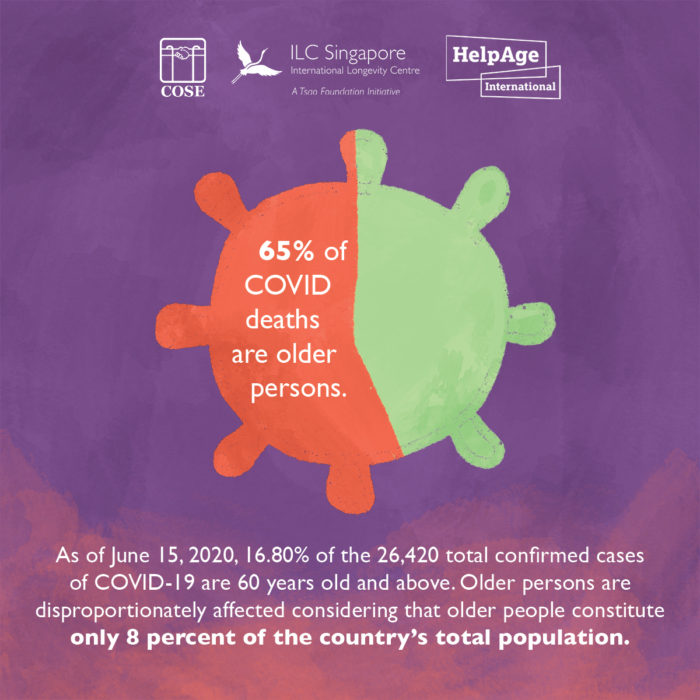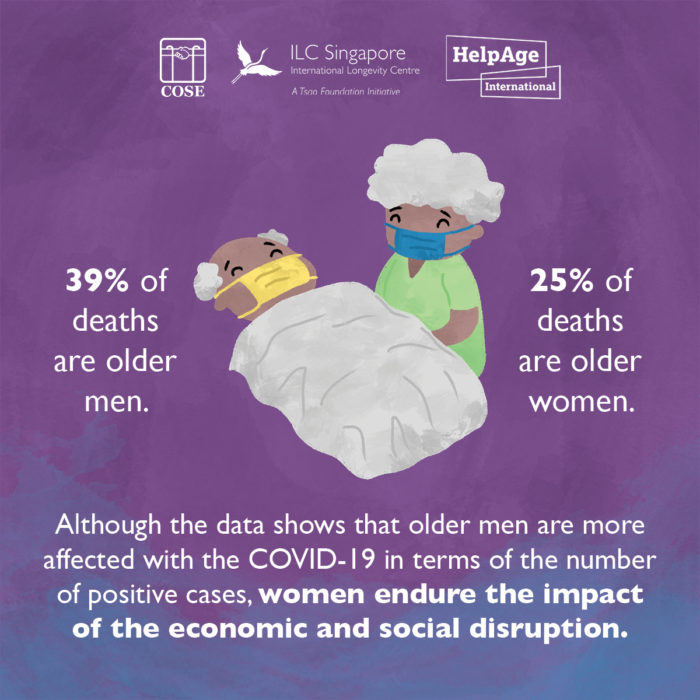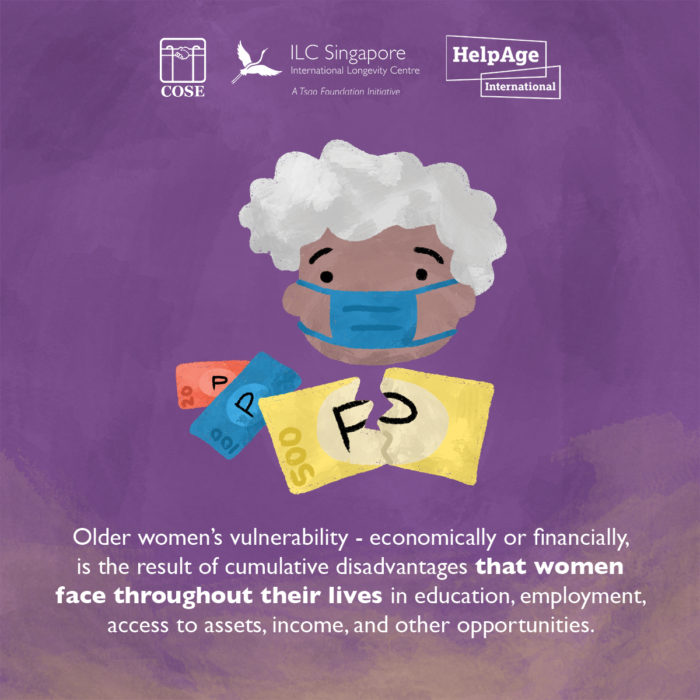Older women and men bear the brunt of COVID-19!
The crisis brought by the COVID-19 pandemic takes an extra toll on older women and men and their families who are already economically vulnerable prior to the crisis. Most alarmingly, older persons bear the brunt of the COVID-19 deaths in the country.

Older Women are more economically vulnerable even prior the pandemic
While women outlive men, evidence suggests that older women are found to be less financially secure than men. They are more likely than men to be in informal and vulnerable work with lower to no incomes and get lower pensions because women’s accumulated funds in the individual accounts are lower than men’s. With the limited income from work and pension, older women are more likely rely to informal sources such as support from the family and remittances from family members working overseas.

Furthermore, during the lockdown, the delivery of the social pension was also affected. With the delay in the delivery of the social pension for the indigent senior citizen, many poor older women and men no longer have money to spend on medicines and food. Although the social pension benefit amounting to P500/ month or P3,000/ semester of around 59USD is considerably low, it is a big help for social pensioners to augment their medical and daily needs. Many older women and men have incurred debts and once they receive their six months’ social pension, this will go directly to the sari-sari store as payment for all the food items and other groceries they’ve got while waiting for the schedule of the pay-out.
The delay of delivering their benefit, and the restrictions of going out, older women and men cannot look for other ways to earn a living which makes their vulnerability doubled.
Also, many older women and men shared that the lack of income due to limited and/ or temporary suspension of economic activities, on top of unavailability of free medicines from the Municipal/ Rural Health Centers, forced them to temporarily stopped or already have skipped taking some of their maintenance medicines.
The older women’s vulnerability stemmed not only from their weakened immune system and underlying medical conditions but also because of their generally poor economic well-being, a condition even before the quarantine.
